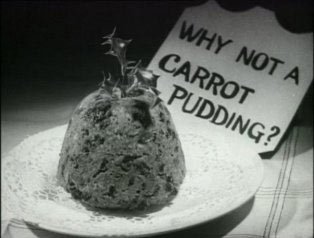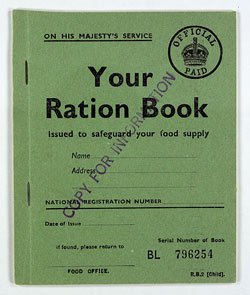Away from the battlefields of WW2, everyday folk were tightening their belts but looking ahead to a frugal but festive Christmas. Helen Morgan from Abergavenny Local History Society Reports
 Butter, bacon and sugar had been rationed since 1940 but the list grew longer as German U-boats stepped up their offensive in the Atlantic in 1942. By January, rice, sago, beans, lentils and dried fruit had become scarce and by February soap, too, was rationed. Petrol was in short supply and bakers in Abergavenny were forced to cut their rounds to three days a week.
Butter, bacon and sugar had been rationed since 1940 but the list grew longer as German U-boats stepped up their offensive in the Atlantic in 1942. By January, rice, sago, beans, lentils and dried fruit had become scarce and by February soap, too, was rationed. Petrol was in short supply and bakers in Abergavenny were forced to cut their rounds to three days a week.
In May, local women and children rose to the challenge and collected 5 tons of nettles to be used “for a secret war purpose” in response to an appeal by the Ministry of Supply. Later in the year they went on to collect foxglove leaves, dandelion roots, rosehips, horse chestnuts and raspberry leaves for medicinal purposes. Special drying sheds were set up in Abergavenny, Newport, Monmouth, Chepstow and Usk, with the Girl Guides being volunteered to turn the leaves twice a day. By mid-summer press reports talked of John Logie Baird’s dream of £10 colour TV sets after the war with the promise that “when peace comes it will quickly become a reality”. The actual reality, though, was that sweets, chocolate, syrup, treacle and tinned meat went “on the ration” in July. It also saw an end to petrol for anyone other than emergency services, bus companies and farmers. Everyone else had to take their vehicles off the road.
 Gwent was no stranger to profiteering and the black market. A typical case was Alfred Symonds of the Old Rectory, Llanwenarth, who was fined £15 for overcharging for apples in February. Later that year, food inspectors raided Abergavenny market and seized 80 dozen eggs plus butter and bacon that were being traded under the counter.
Gwent was no stranger to profiteering and the black market. A typical case was Alfred Symonds of the Old Rectory, Llanwenarth, who was fined £15 for overcharging for apples in February. Later that year, food inspectors raided Abergavenny market and seized 80 dozen eggs plus butter and bacon that were being traded under the counter.
Not all was doom and gloom, however. By November the British had recaptured Tobruk in Northern Africa. Earlier in the year, parcels began to reach Allied prisoners of war via the Red Cross in Geneva and, in December a three-day bazaar in the ballroom at the Angel Hotel raised £1,400 for the PoW fund. Looking ahead to life after the war, William Beveridge published his report on how to tackle the Five Giant Evils of Want, Disease, Ignorance, Squalor and Idleness, leading the setting up the National Health Service. To the Shores of Tripoli starring Maureen O’Hara and Randolph Scott was showing at the Pavilion cinema and, fittingly, by January 1943, Montgomery’s Eighth Army had seized Tripoli. Things were looking up.
Abergavenny Local History Society’s lecture season resumes in January

